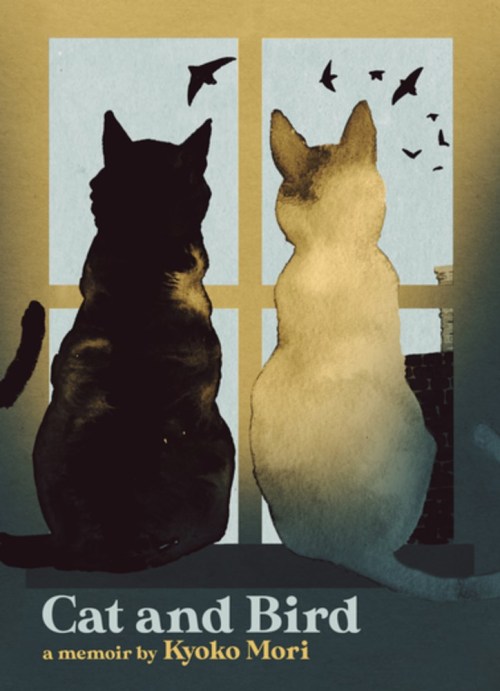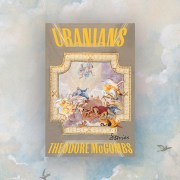[ad_1]
What does it mean to find a home? Home has always been very much on the mind of Kyoko Mori, from her lyrical coming-of-age novel, Shizuko’s Daughter, to her memoir-though-knitting, Yarn: Remembering the Way Home. Connecting Mori’s fiction and nonfiction is an interest in understanding women’s communities and their ways of existing in the world. These works have culminated in her most fulsome treatment of belonging, Cat and Bird—an exploration of her transformative journey to find a sense of belonging across cultures and countries, even when that belonging is counter to traditional notions of women in the home. Cat and Bird follows Mori through key moments in her life, each marked by relationships with six different house cats and her work as a bird rehabilitator, as she expertly weaves the threads of her past into the tapestry of her present.
Divided between her life in America and her memories of Japan, Mori’s narrative captures fragments of belonging and alienation through a series of vignette-like chapters that focus on the specific relationships, both animal and human, that have shaped her life. The memoir takes her experiences in college abroad in the U.S. as a catalyst to reflect on her childhood in Japan and her complex relationship with her mother, who tragically took her own life when Mori was just twelve years old. Mori vividly describes her mother’s constrained life, shaped by societal expectations of an exacting form of womanly behavior, and a marriage to a cruel and unfeeling man. “My mother had led a life of self-quarantine,” she writes. Even as a young girl, Mori recognized how her mother’s position as a wife and mother in a patriarchal society limited her freedom, tightening around her like a vice to hold her in place.
In one particularly moving scene recalling her mother’s funeral, Mori remembers her mother’s friend standing over the casket: “Years later, she would tell me that this was the moment she realized my mother had succumbed from the malady of being a good wife.” These words haunt Mori as she enters into a ten-year marriage to an American during graduate school. She ultimately chooses to end the relationship amicably once she recognizes the companionship of a husband does not fulfill her or contribute to her sense of independence. Determined to forge a different future for herself—one in which solace and alternative forms of companionship might be enough—Mori discovers the value of solitude and the company of animals while pursuing her writing and exploring the country, living in Milwaukee, Green Bay, Boston, and Washington, D.C.
Out of all her works, Cat and Bird most embodies Mori’s dedication to re-envisioning the contours, constraints, and freedoms of a woman’s life, rejecting societal expectations that view single women as incomplete. Instead, she writes fearlessly of the pleasures and possibilities of a woman’s desire for her own companionship, writing “[s]ingle, married, or divorced, I was who I was by myself.” Her prose operates with a directness that conveys confidence and contentment in her decisions and the lifestyle she has chosen for herself. Her voice is striking and unapologetically honest, challenging the traditional narrative of the self-sacrificing mother and wife, and establishing a meaningful distinction between solitude and loneliness, particularly for women. “My mother had killed herself because she believed she was nothing without a husband who loved her,” Mori writes. “Every night of our last year together, I had promised her that I would find meaning in the life I made on my own.”
To understand Mori’s quest for meaningfulness solely in terms of solitude would be to ignore the new forms of joyful attachment that she forges with animals. Cat and Bird recounts Mori’s extensive rehabilitation work with birds during graduate school, as well as the seminal relationships she fashions with her house cats, showing us again and again how companionship can present itself in many forms.
In a memoir of uncommon self-assurance, Mori remembers, remakes, and releases her past. In a culture where the home is often a space characterized by traditional expectations for women, Mori turns her homes into restorative spaces that serve her love for solitude, writing, and animal friendship. Regarding her life-long search for belonging, she writes, “[t]he journey had united me with a universal life force, and the personal rewards were all mine. I didn’t need a future, or a past, or a husband.” Cat and Bird gives voice to emotions that lack a proper vocabulary for cultural expression, especially concerning women’s myriad experiences, desires, and selfhoods. Ultimately, Mori’s homes become intentional spaces where she cares for her cats and they care for her, creating the sense of belonging and purpose she has sought her whole life.

NONFICTION
by Kyoko Mori
Belt Publishing
Published on March 5, 2024

[ad_2]
Source link

